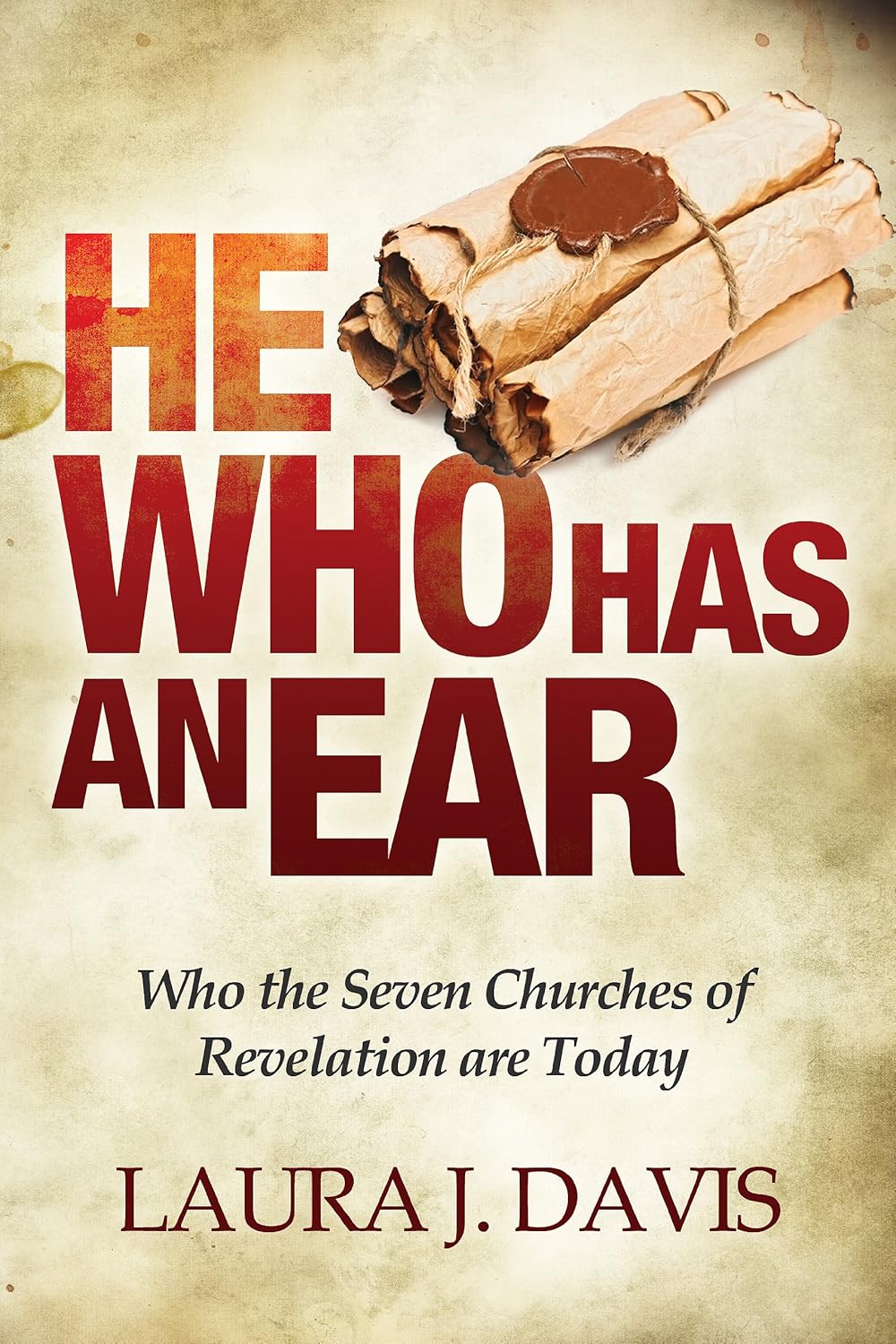Book review: He Who Has an Ear
by Laura J. Davis
★★★★
Caution to readers of this review: As a liberal Christian who promotes liberal Christian books, I am a “wolf in sheep’s clothing” who will be held accountable by God for deceiving Christians. That is Laura Davis’s reckoning, who calls for Christians to rightly discern doctrine by making sure it aligns with scripture.
Don’t worry, I didn’t just offend my new acquaintance. Davis actively promotes stringent intolerance as a Godly virtue, and couldn’t have picked a better book of the Bible for her foundation: that intolerant book of Revelation. Had she been writing about John’s Gospel, I could not have given it four stars. Her stance is quite consistent with the scriptures she reviews, and I appreciate that. Still, I doubt she realized my deep liberal stance before passing her book to me for review, nor did I realize her deep conservative stance when I requested it.
He Who Has an Ear covers the seven letters to the seven churches in chapters 2 and 3 of Revelation, and Davis provides a thorough exposition. I also have studied these letters, and the history of the cities to which they are addressed, so I can vouch for her accuracy and depth of research. Not so much for her Greek translation of words like apokteinō. The writing is interesting and engaging, so I enjoyed the book.
Davis then goes a step further and considers the impact of these letters, their promises and warnings, to today’s world. They were all written to churches which no longer exist, but might the letters have more relevance than we think 2,000 years later? Do you see your own church in any of them? (Yes, Laura, I do … I grew up in the church at Ephesus.) If so, the warnings of Jesus should be carefully heeded.
One place where I felt Davis’s treatment didn’t quite jibe with Revelation was her assumption that the gospel is about going to heaven. That the book of life is a list of people going to heaven. As best I can tell, Revelation doesn’t say anything at all about going to heaven, and instead suggests the afterlife will be lived on earth.
Then Laura begins chapter twelve with the words “I don’t think this chapter is going to win me any friends.” It’s her Wolves in Sheep’s Clothing List, where she lists the worst offenders by name. This chapter, too, is quite within the spirit of Revelation’s letters, where John of Patmos invokes the authority of God to condemn both churches and individuals: “Balaam,” “Jezebel,” “the Nicolaitans.” Laura’s list of baddies includes Joel Osteen, Kenneth Copeland, Benny Hinn, Rob Bell, and lots more.
I confess that I can find nothing very Christlike in a prosperity gospel (that would be folks like Joel Osteen), but I’d also be remiss if I didn’t challenge Davis’s conservative Bible understanding, since she makes it such a personal matter. Davis is “fascinated that Rob Bell ignores all mentions of hell in the Bible,” and wonders how he reconciles scriptures like Matthew 10:28, Matthew 23:33, Mark 9:43, Revelation 20:15. The answer is, Bell probably reads all of these in the context of first-century idioms and events as Bible scholars should, and recognizes that none of them really have anything to do with the doctrine of eternal punishment. Laura, if you really do want to know why many scholars read scripture differently than you do, I’d enjoy chatting with you about it.
Davis finally closes her book with precisely the promise made over and over to Revelation’s audience 2,000 years ago: “Jesus is coming soon.” A perfect ending. Her book is well-organized, thoughtful, and thought-provoking in a conservative way.












 354 Circles
354 Circles
 603 Goodreads Friends & Fans
603 Goodreads Friends & Fans

 Hello! I'm an author, historical Jesus scholar, book reviewer, and liberal Christian, which means I appreciate and attempt to exercise the humanitarian teachings of Jesus without getting hung up on any particular supernatural or religious beliefs.
The Bible is a magnificent book that has inspired and spiritually fed generations for thousands of years, and each new century seems to bring a deeper understanding of life’s purpose. This is true of not only Christianity; through the years, our age-old religions are slowly transforming from superstitious rituals into humanitarian philosophies. In short, we are growing up, and I am thrilled to be riding the wave.
I avidly read all thought-provoking religion titles. New authors: I'd love to read and review your book!
Hello! I'm an author, historical Jesus scholar, book reviewer, and liberal Christian, which means I appreciate and attempt to exercise the humanitarian teachings of Jesus without getting hung up on any particular supernatural or religious beliefs.
The Bible is a magnificent book that has inspired and spiritually fed generations for thousands of years, and each new century seems to bring a deeper understanding of life’s purpose. This is true of not only Christianity; through the years, our age-old religions are slowly transforming from superstitious rituals into humanitarian philosophies. In short, we are growing up, and I am thrilled to be riding the wave.
I avidly read all thought-provoking religion titles. New authors: I'd love to read and review your book!
 Hi! While Lee writes the articles and reviews the books, I edit, organize, and maintain the blog. The views expressed here are Lee's but I'm his biggest supporter! :-)
Hi! While Lee writes the articles and reviews the books, I edit, organize, and maintain the blog. The views expressed here are Lee's but I'm his biggest supporter! :-)
Connect With Me!